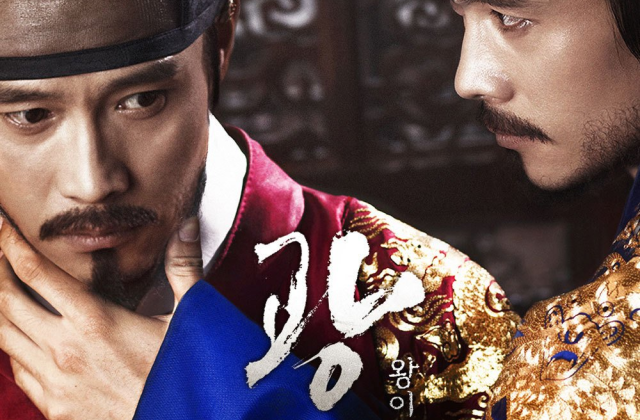Masquerade – Moving and lavish costume drama

‘Masquerade’ is a fascinating and enjoyable look at a king of an early Korean dynasty and the jester who looks just like him.
In the 16th century, Prince Gwang-hae became king of the Joseon Dynasty (an important historical Korean state). He faced war throughout the region and was later deposed, despite his best efforts. In the official court chronicles, there are two weeks missing during his eighth year as king — Masquerade tells a fictional tale of what might have happened.
As we begin to look into the royal court, we see Gwang-hae (Lee Byung-hun from GI Joe: The Rise of Cobra) — not a very popular ruler — constantly worried about being assassinated. At the same time, Ha-sun, a local jester who is eerily similar looking to the king (also Lee Byung-hun, of course) is arrested for making fun of the king. The king finds this identical-faced person intriguing, but it doesn’t quite get into Prince and the Pauper territory, as the king falls into a coma after being poisoned (apparently he was right to be paranoid). Naturally, the king’s close adviser and the Chief Eunuch bring Ha-Sun in to be pretender to be the throne until Gwang-hae wakes up.
Ha-sun is a very different sort of person than the dour and frustrated monarch, empathetic and kind even the lowliest of servants, with a lighthearted and silly sense of humor. He only agrees to the pretense for a bit of payment and “for the good of the country.” So this simple-minded but earnest jester must now deal with complicated political issues. His Queen’s brother has been arrested for treason, and her roots to the Greater Northern country have led to tensions. The Chinese and Japanese rulers have been involved in various wars, and then there’s Park Chung-Seo, the Ministry of the Interior that is the king’s primary political rival. And people are starting to notice the king acting quite differently indeed.
This is a historical drama based on a real setting, but the events are entirely invented. The story starts farcical and slapstick but quickly becomes quite emotional and dark, as we see the dangers of political power. At times the humor gets a bit stupid, scatological at times, although the other humorous asides work better. There really do not need to be so many jokes about bodily functions in an otherwise serious dramatic movie. In general, the acting is very good — Lee Byung-hung is fantastic as two very different people, although Gwang-hae isn’t on screen nearly as much as Ha-sun, who is the real hero of the story. He cares about the people, not money — a true humanitarian. We get a real feeling for several people in different classes and how they begin to appreciate Ha-sun, from the kneeling food taster to the fiercely loyal bodyguard. In general, there are times of over-dramatic scenes and confusing political asides about taxes and landowners that are probably important in a historical context but don’t seem relevant to the story. The villain of the story seems overly simplistic — we don’t really get an idea about what he’s about or why he’s opposed to the king.
However, although it drags in places, the movie ends up feeling like an inspiring tale of the potential of people to not be corrupted by power. It is a beautiful film about people, seen through the twisted lens of great power. The lesson may be questionable, but at least it believes in the potential of people to be good.
 CliqueClack
CliqueClack

